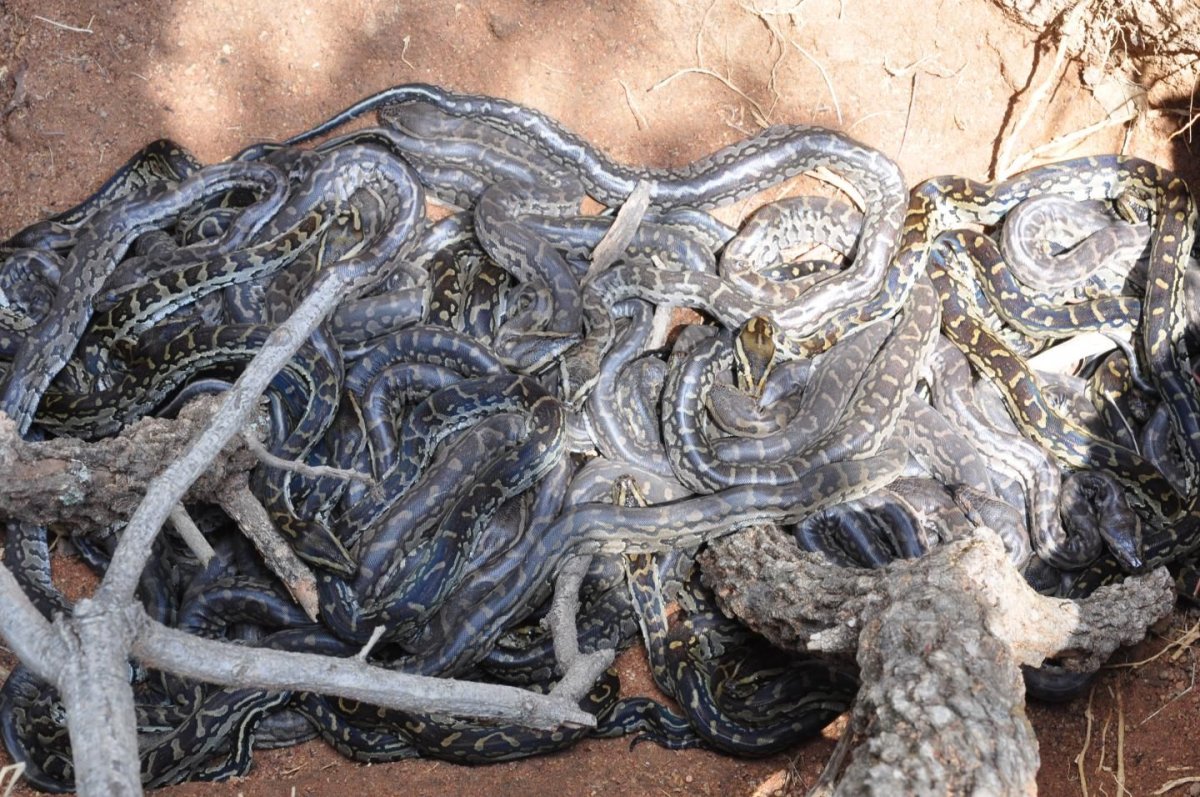For the first time, scientists have observed an egg-laying snake taking care of its young.
Some snakes give birth to live young, but pythons lay eggs. Many animals that lay eggs will guard them and keep them warm, but then evict the young once they hatch. Researchers at the University of Witwatersrand in South Africa filmed one southern African python living in a burrow with her hatched young, keeping them warm and protecting them.
The scientists, led by Graham Alexander, professor of herpetology, caught a southern African python, put a tracking device in her, and followed her to her den, Reuters reported. They put infrared cameras inside to see what she would do.
They witnessed the snake curling around her eggs to keep them warm, and then when they hatched, she did the same thing. She protected them, but didn't feed them or teach them anything, though. The young remained with the mother for two weeks. The study, published in the Journal of Zoology, is "the first-ever report of maternal care of babies in an egg-laying snake," Alexander said in a statement.

The scientists knew that breeding females change from their normal brown spotted pattern to black when breeding. As cold-blooded animals, snakes get warmth from the sun. A black snake absorbs more warmth from the sun, and then will slither back to her burrow. She'll sit on her eggs to keep them warm, and then, unlike some other egg-laying snakes, she'll continue to keep her clutch of newborns warm and protected in the burrow.
Evolutionarily, there are costs and benefits to parenting young. On the one hand, keeping your offspring safe, warm, and fed increases their chance of surviving long enough to mate and pass on their genes, helping your lineage grow. A wide variety of animals will parent their young, from humans to elephants to reptiles and fish. There is even fossil evidence that an aquatic arthropod was taking care of her young 520 million years ago.
On the other hand, taking care of helpless offspring uses energy, time and resources, all of which could be better spent mating and bearing more young. That's why plenty of animals hedge their bets by leaving their eggs to hatch alone and hoping for the best.
After two weeks, the southern African python will leave the babies to fend for themselves. Mom needs to go hunt for herself and get ready for the next brood.
Uncommon Knowledge
Newsweek is committed to challenging conventional wisdom and finding connections in the search for common ground.
Newsweek is committed to challenging conventional wisdom and finding connections in the search for common ground.
About the writer
Kristin is a science journalist in New York who has lived in DC, Boston, LA, and the SF Bay Area. ... Read more
To read how Newsweek uses AI as a newsroom tool, Click here.








